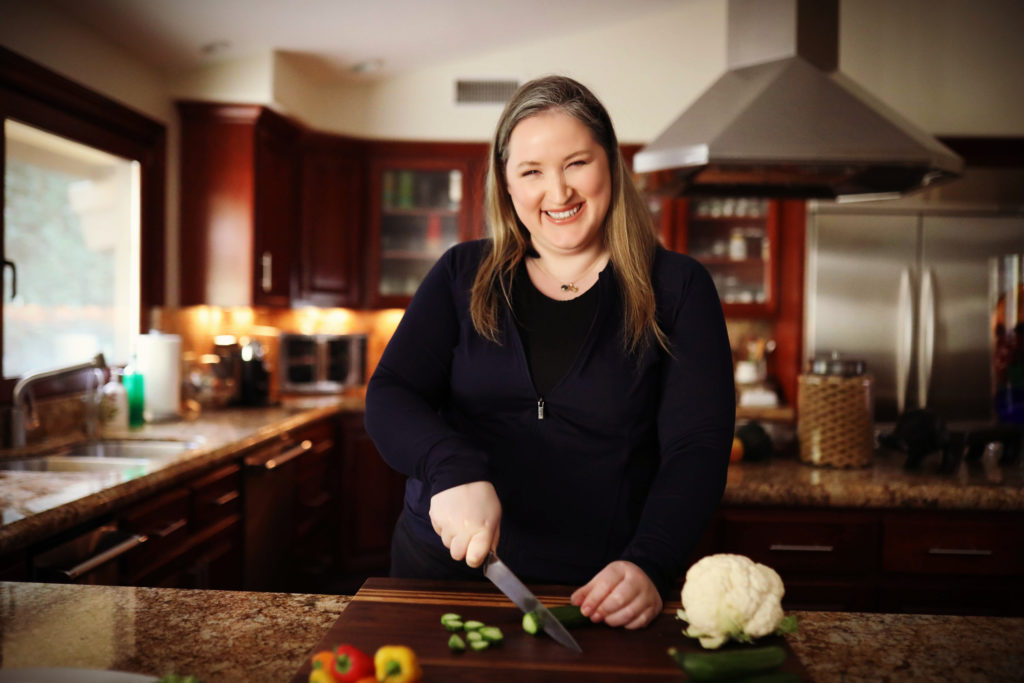February is here, and with it, love is in the air! With the winter season coming to an end February is the month when we start to see more foods coming around. One of the areas we see this is seasonal vegetables. Even with the new additions to our variety in options February foods keep the common theme of nutrient-dense foods that we have come to know and love during the winter months. While the vegetables that are available in the other months of the winter season are still readily available we start to see more vegetables that bring spring to mind.
When it comes to eating seasonally for your health this is another month packed with power players. All the vegetables highlighted this month are high in fiber and help support our immune systems. During the cooler months of the year, we tend to see an increase in seasonal illnesses. This is largely due to the temperature change and its effects on our lungs. Luckily for us, mother nature has us covered. The following is a list of my top five favorite vegetables available in February.
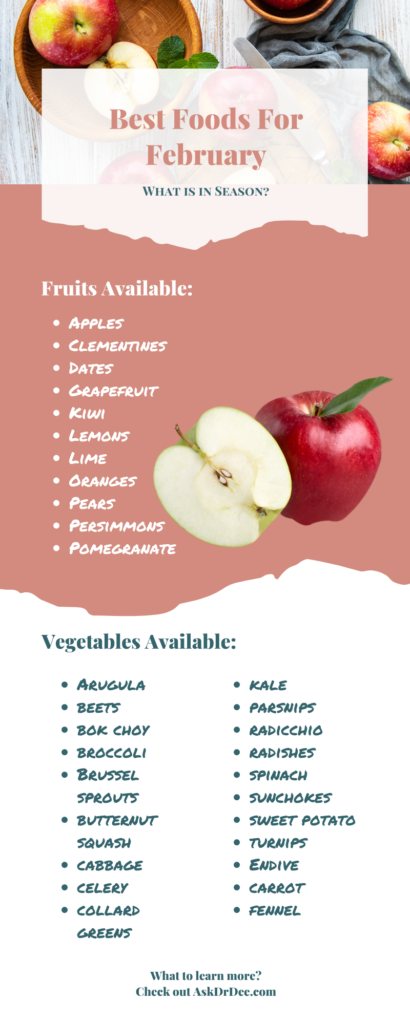
Killer Kale:
Kale contains fiber, antioxidants, calcium, vitamins C and K, iron, and a wide range of other nutrients that can help prevent various health problems. Antioxidants help the body remove unwanted toxins that result from natural processes and environmental pressures. These toxins, known as free radicals, are unstable molecules. If too many build up in the body, they can lead to cell damage. This may result in health problems such as inflammation and diseases. Experts believe that free radicals may play a role in the development of cancer, for example. Kale is a rich source of vitamin K, which contributes to blood clotting. This could interfere with the activity of blood thinners, such as warfarin (Coumadin).
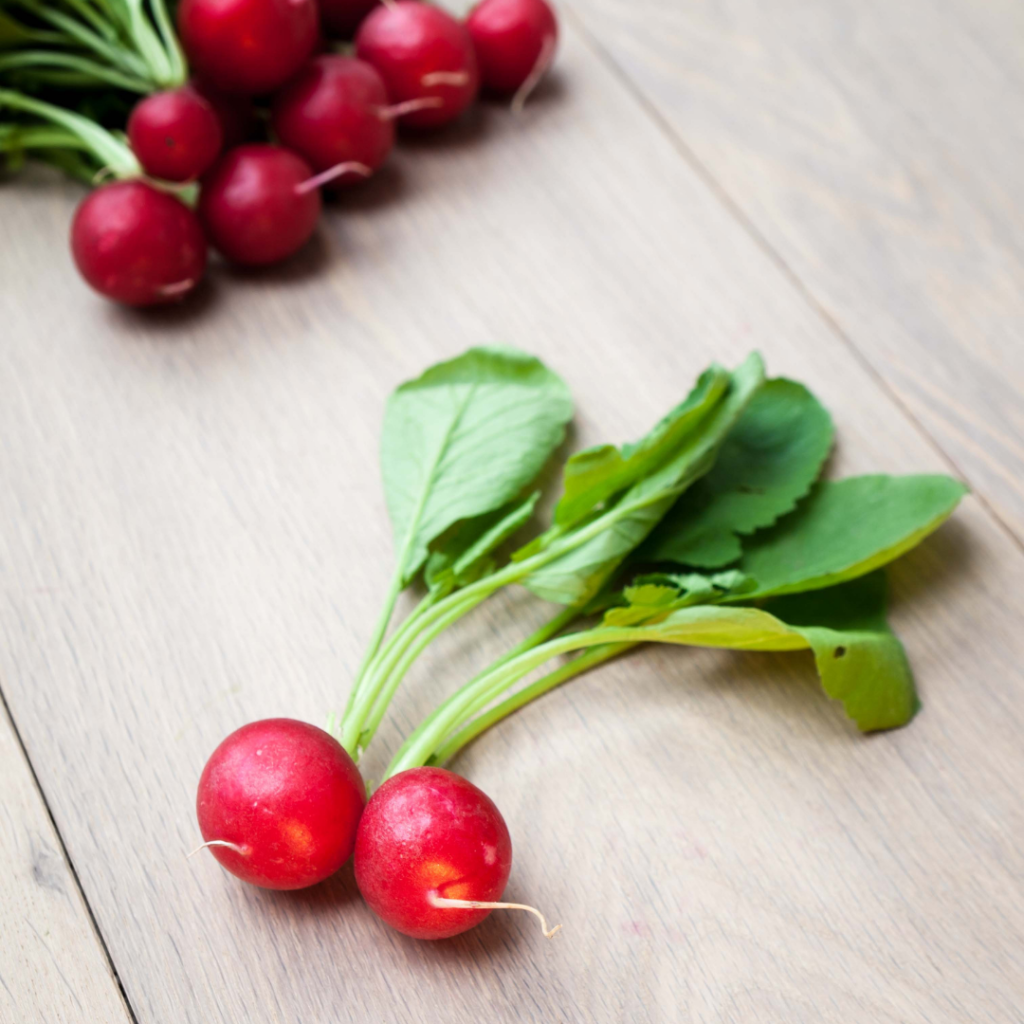
Rocking Radishes:
Radishes contain high levels of water. Vitamin C, phosphorus, zinc, and some components of the B-12 complex. These ingredients are vital to maintaining proper hydration and standard skin conditioning. They are also beneficial to relieving constipation, improving your digestion system, and maintaining an adequate intake of the nutrients from the food you eat. Radish is known to control damage to our red blood cells, and in the process also increases oxygen supply to the blood. If you eat it as part of your daily salad intake, without going overboard, of course, radish also provides your system with ample roughage and fibers, therefore improving your digestion. It also regulates bile production, safeguards your liver and the gall bladder, and is great for taking care of water retention.
Radishes are a good source of anthocyanins that keep our hearts functioning properly, reducing the risk of cardiovascular diseases. Plus they are high on vitamin C, folic acid, and flavonoids too. Radish also provides your body with potassium, which can help lower your blood pressure, and keep your blood flow in control, especially if you are known to suffer from hypertension. According to Ayurveda, radish is believed to have a cooling effect on the blood. Given that the radish has high vitamin C, it can protect you from common cold and cough, and improve your basic immunity system. But you must consume it regularly. It also controls the development of harmful free radicals, inflammation, and early aging.
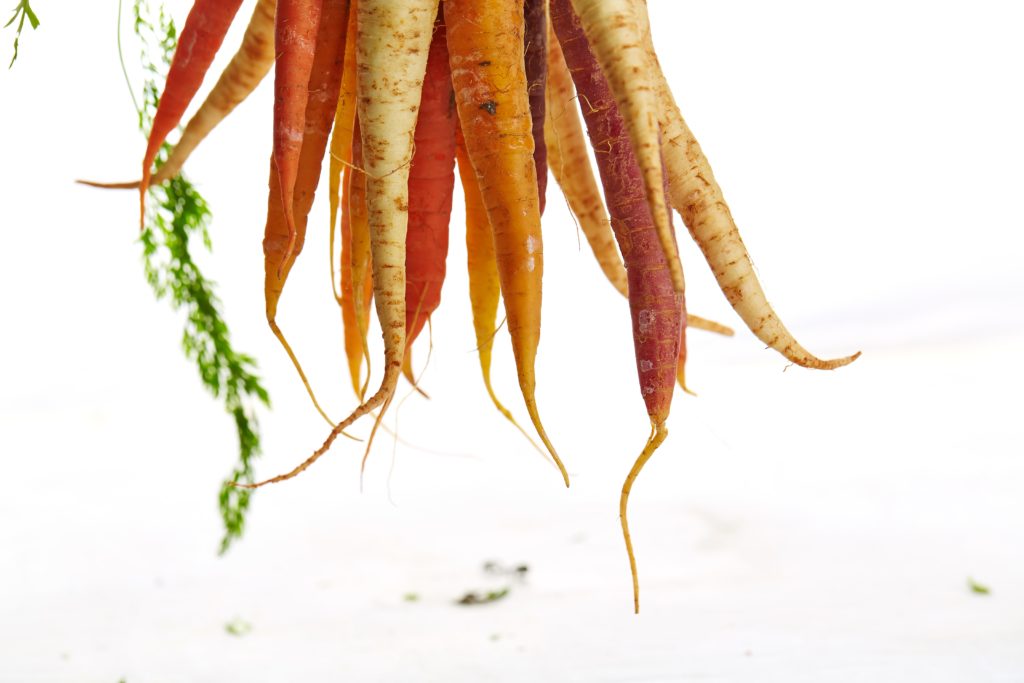
Caring Carrots:
Rich in vitamin A, carrots serve as a great detoxifying agent that removes toxins from the blood and delays aging, keeping you mentally and physically feeling younger. Vitamin A is also important for vision and can prevent night blindness. Carrots are excellent sources of vitamin C, which is the chief producer of collagen, a protein that makes up most of the body’s cells and is an active participant in the cell renewal process. Carrots are also an important vitamin K, vitamin B8, folate, potassium, iron, copper, and manganese. Vitamin K plays a huge role in regeneration by promoting blood clot formation. Folate is a primary component of DNA and is vital for the reproduction and renewal of cells of our body. Ions such as potassium, iron, copper, and manganese can also be found in carrots and are important for our body’s physiological processes, like maintaining normal blood pressure and respiration.
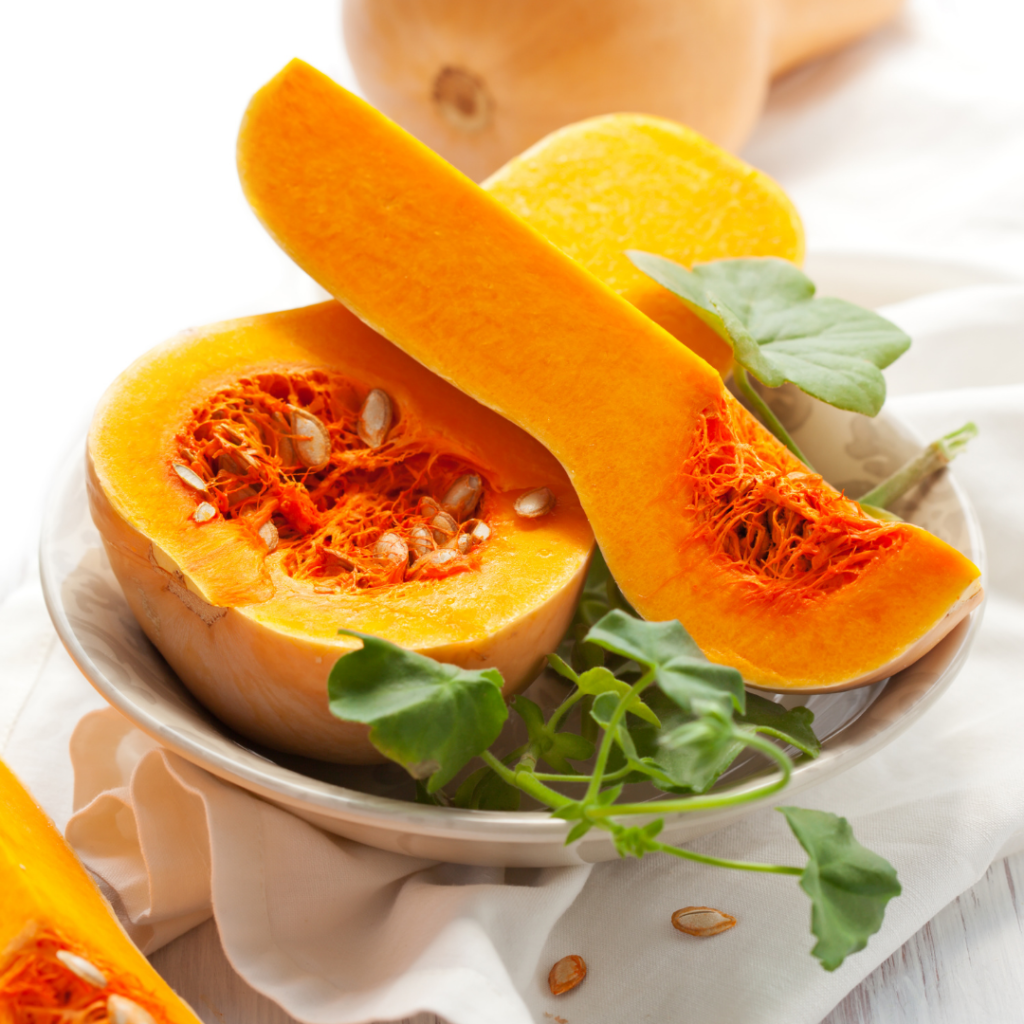
Beautiful Butternut Squash:
Butternut squash is nutrient-dense and healthy food for the majority of us. However, those medicated with beta-blockers or ACE inhibitors may be advised to minimize their intake of potassium-rich foods, including butternut squash. Research has shown that phytonutrients, such as zeaxanthin and lutein, may help to protect eye health, and butternut squash contains both of these carotenoids. Beta-carotene, which we convert to vitamin A, also plays a role in eye health and healthy cell renewal, and diets that are high in brightly colored fruits and vegetables, including butternut squash, are rich sources. Beta-carotene also helps to support the natural function of the immune system, along with vitamin A which can help to prevent infections.
Just 100g of butternut squash (baked) contains around 2g of fiber, which is 7% of the recommended intake of fiber for adults. There is strong evidence that fiber is associated with a reduced risk of heart disease, bowel cancer, and type 2 diabetes, but it can also help digestion and prevent constipation. Butternut squash is low in calories, high in fiber, and has a comforting sweet flavor which may help manage appetite.
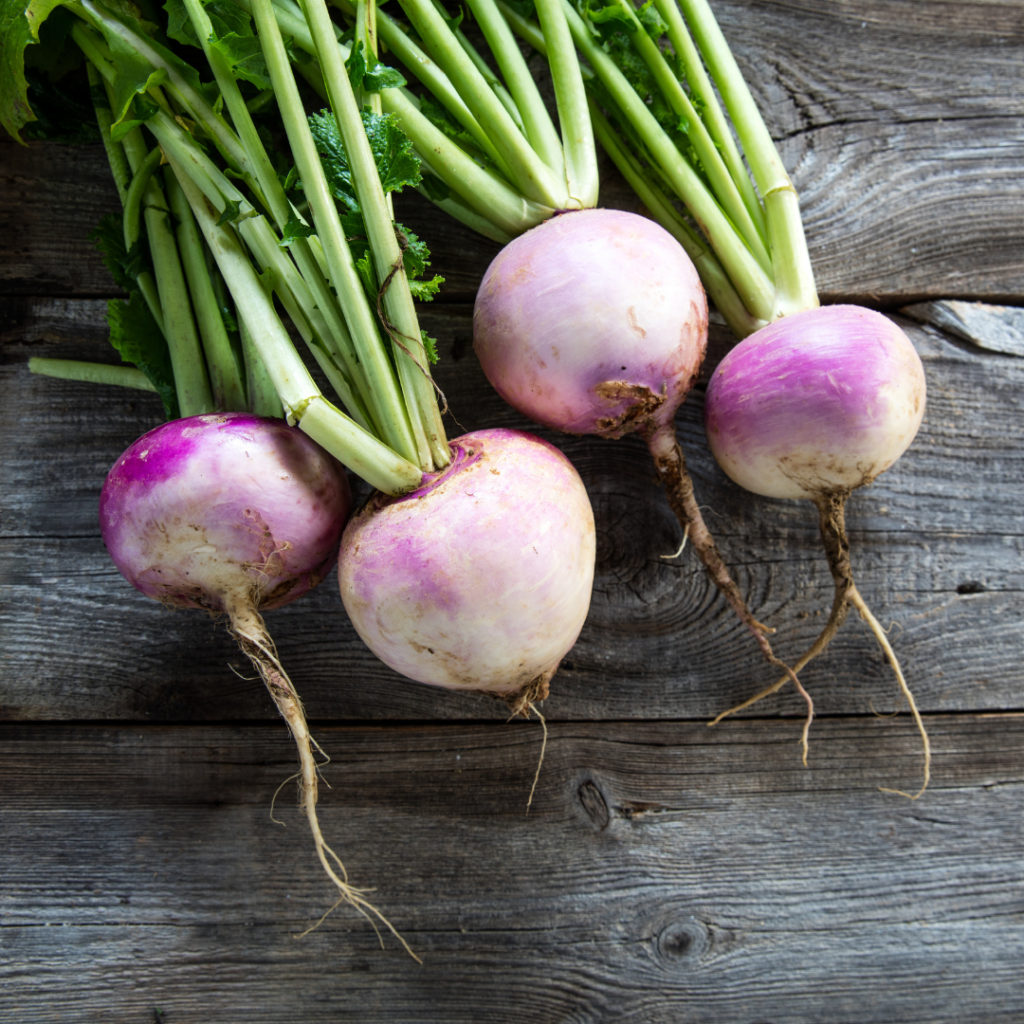
Turn up for Turnips:
Turnips are not only excellent at soaking up the flavor and adding a hearty element to your meals and stews, but these root vegetables also possess high levels of important nutrients and minerals that the body requires to function properly. Turnips are rich in calcium, phosphorus, potassium, sodium, and magnesium. Amongst vitamins, they contain vitamin C, folate, and niacin. These vegetables are high in fiber and low in calories and are typically inexpensive, making them a logical choice for inclusion in any healthy diet. Vitamin C and ascorbic acid, present in large quantities in turnips are important boosters for our immune system. Vitamin C can stimulate the production of white blood cells and antibodies, in addition to acting as an antioxidant and reducing chronic health concerns like cancer and heart diseases.
Turnips may have a number of essential nutrients that our body needs for proper functioning, including high levels of potassium and fiber. Potassium can function as a potential vasodilator, possibly helping to reduce the strain on our blood vessels and arteries by lowering the blood pressure. This can prevent the development of atherosclerosis, as well as heart attacks and strokes. The significant level of iron found in turnips may make them an asset if you suffer from low blood cell count or anemia. Iron is required in the formation of RBC that are needed by the body to oxygenate, repair, and run the body’s organ systems.
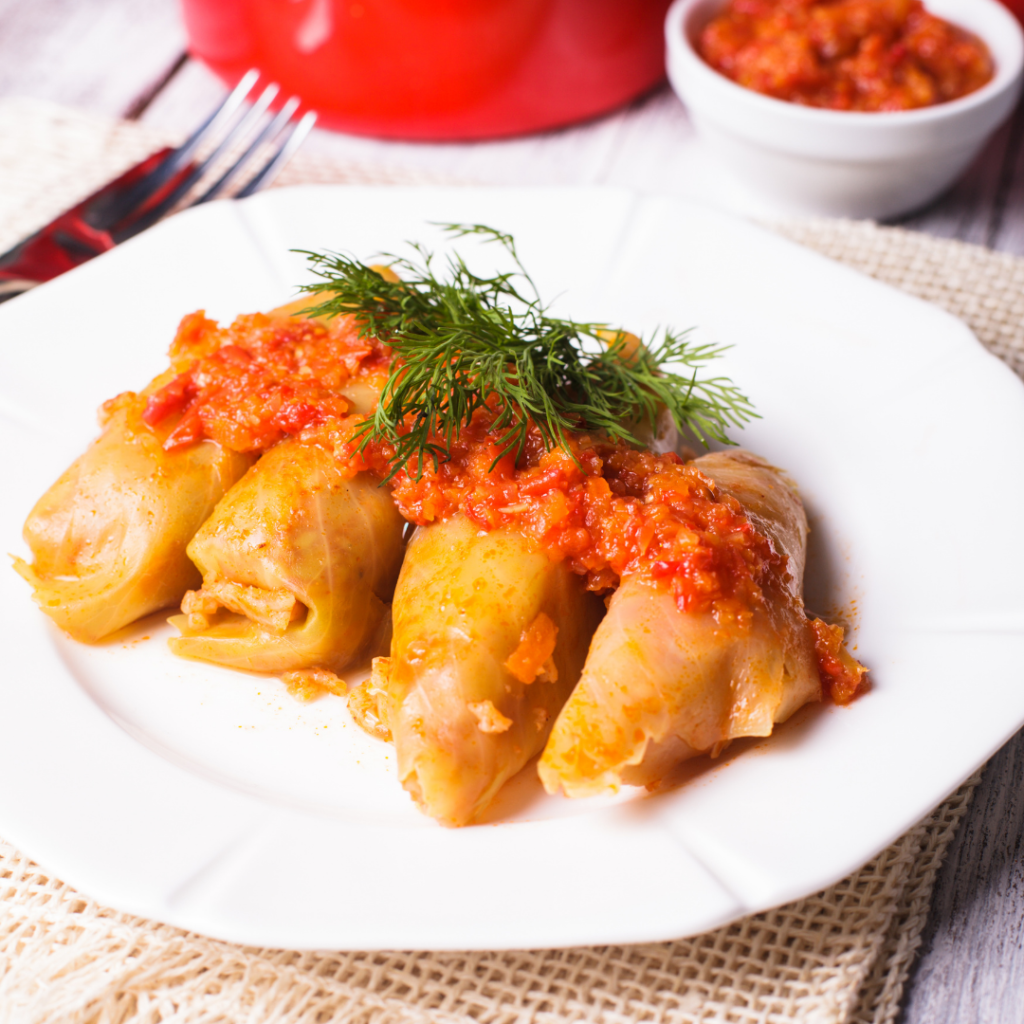
Stuffed Cabbage Rolls
Gluten-Free, Vegan, Serves 6
- 1 Tbsp Lemon Juice
- 12 leaves cabbage
- 1 cup cooked white rice
- ¼ cup Coconut Milk
- 1 Tbsp Coconut Sugar
- ¼ cup Vegan Greek Yogurt Plain
- 1 tsp Vegan Worcestershire sauce
- ¼ cup minced onion
- 8 Cups Diced Portabello Mushroom
- 1 ¼ tsp salt
- 8 oz can tomato sauce
- 1 ¼ tsp ground black pepper
Directions:
Bring a large pot of water to a boil. Boil cabbage leaves for two minutes; drain. In a large bowl, combine 1 cup cooked rice, egg, milk, onion, sauteed mushrooms, salt, and pepper. Place about 1/4 cup of mixture in the center of each cabbage leaf, and roll up, tucking in ends. Place rolls in the slow cooker. In a small bowl, mix together tomato sauce, brown sugar, lemon juice, and Worcestershire sauce. Pour over cabbage rolls. Cover, and cook on Low for 8 to 9 hours.
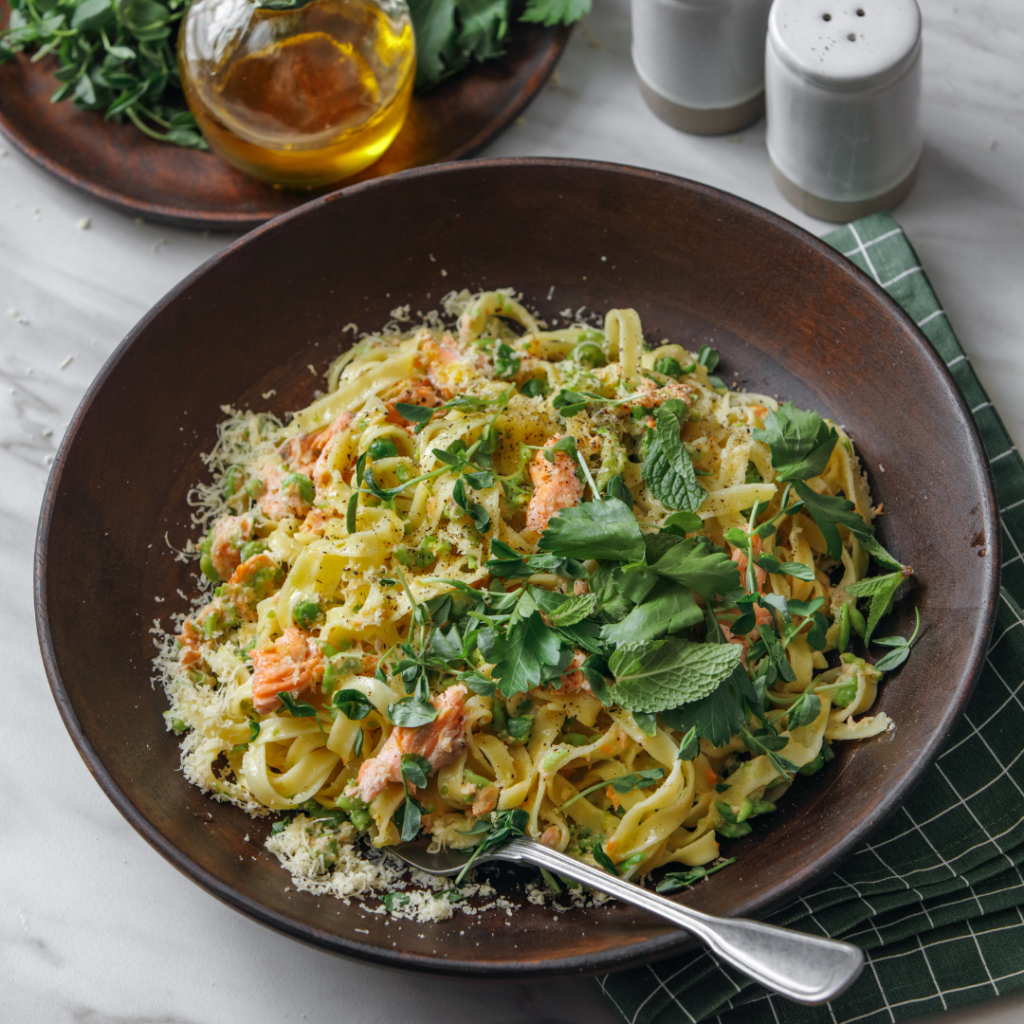
Creamy Salmon Spinach Pasta
Gluten-Free, Dairy-Free, Serves 4
- 2 Salmon Fillets
- 12 oz Gluten-Free Pasta of Choice
- 2 Tbsp Vegan Butter
- 3 cloves Garlic Minced
- ¼ cup Coconut Cream
- 5 oz Baby Spinach
- 1 tsp Lemon Zest
- 2 Tbsp capers (or peppercorns)
- 1 Lemon wedged
- Sea Salt and Pepper to taste
Directions:
Preheat the oven to 400 degrees F and prep a large pot of salted boiling water for the pasta. Pretreat a baking sheet with a nonstick option of choice. Place salmon skin side down onto the baking sheet and season with salt and pepper. Bake salmon for 12 minutes or until the salmon’s internal temp is 145 degrees F. Meanwhile, in the pot cook pasta according to directions on the box. In a large skillet heat the butter over medium heat. Add garlic to the pan and saute for 1 minute before adding in cream, wine, lemon zest, salt, and pepper. Heat to boiling and then reduce to a simmer and cook for 5-6 minutes or until sauce begins to thicken. Drain the pasta and add to the sauce (always reserve 1/2 cup of pasta water you may need to thin out the sauce with it). Stir in the spinach and capers and cook for another 1-2 minutes or until the spinach wilts. Remove the salmon from the oven and split it up into pieces. Place chunks of salmon over pasta and garnish with lemon wedges.
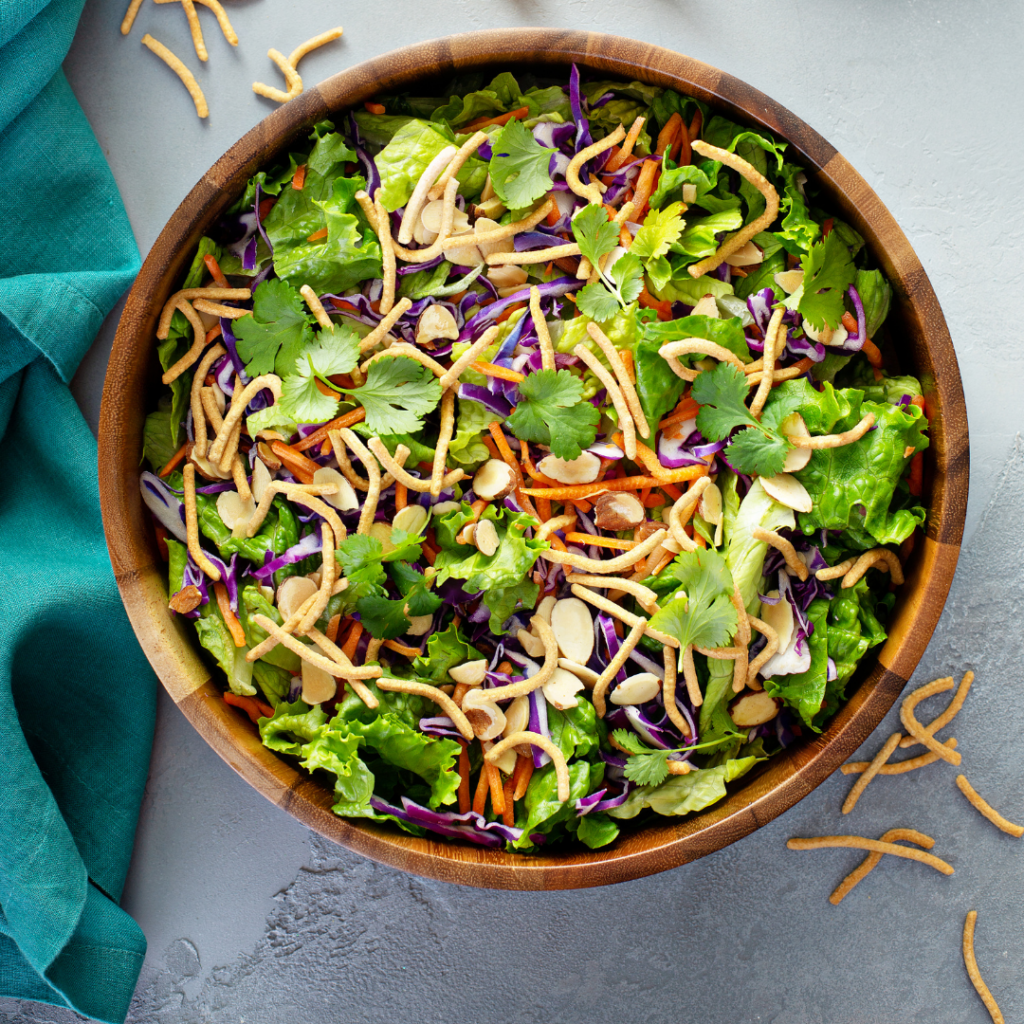
Sesame Avocado Chicken Salad
Gluten-Free, Dairy-Free, Serves 4-6
- 2 cups Cabbage shredded
- 1 cup Kale thinly sliced
- ½ cup Carrots shredded
- 2 cups Chicken cooked cubbed
- 1 cup Cilantro chopped
- ⅔ cup Green Onions chopped
- 1 Avocado cubed
- ⅔ cup Sliced toasted Almonds
- Toasted Sesame Seeds
Dressing:
- 2 Tbsp Avocado Oil
- 1 Tbsp Coconut Amino
- 2 Tbsp Rice Vinegar
- 1 Tbsp Maple Syrup
- ½ tsp Minced Ginger
- 1 tsp Sesame Oil
- ¼ tsp Garlic minced
- Sea Salt and Pepper to taste
Directions:
Combine all ingredients for the dressing in a jar. Combine all ingredients for the salad except the avocado and toss. Top with avocado and dressing and enjoy!
Get Started Today
Keeping your body free of toxins and free radicals is necessary to maintain a healthy life and a healthy mind. There are tons of foods you can add to your regular diet to help your body with its critical detoxifying processes. If you are looking for a safe and all-natural way to detox your body at home be sure to check out my Balancing Abundance Program. Because detoxing is so important and realistically everyone should be doing it on at least a seasonal basis I have taken the time to put together a program to help you do just that. Here’s the thing, I know working with me one-on-one can seem difficult to get into (due to limited space) and I wanted to be able to give everyone an additional solution that has no limits. You deserve to be happy, healthy, and successful at everything you do so here are some recipes to help set you up for success!

Need A Hand?
A happy and healthy life is closer than you may think. We all have to deal with our health daily, and when we don’t feel our best, it shows. If you are tired of just making it through your day, you NEED to start investing in your health today! You are not alone on this journey. If you ever need any help, I am always here to do just that. Even if it is something as small as acting as a sounding board, do you have any questions or concerns I can help you with? Feel free to contact me directly at [email protected], or you can even book a one-on-one call with me. Be sure to subscribe to gain access to tons of free goodies and check back daily for more great recipes and information!

